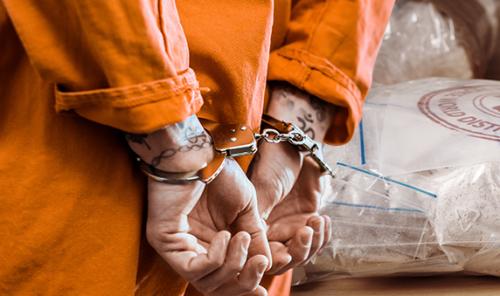Legal Umbrella That Covers Drug Crimes and Types of Drug Charges


Illicit drugs such as heroin, cocaine, and marijuana are forbidden to be used or traded as mandated by federal law as well as state law. This law also forbids anyone for cultivating, manufacturing, distributing, trafficking and possessing these types of substances The sentences for drug charges are usually severe including the prison time of the individual. Sometimes the prosecutors of the case will offer plea deals to those low-level offenders in exchange for helping the prosecution in a larger case.
Some states in America have created a law regarding the use of marijuana for medical purposes. This allows the physicians to recommend the substance for certain types of illnesses while protecting the patients from criminal charges on marijuana-related laws. Other states in the U.S. have already legalized marijuana for other recreational use.
Here are some of the articles that are related to drug charges and their sentences upon the conviction of the court:
Comprehensive Drug Abuse Prevention and Control Act of 1970
Because of the widespread use of recreational drugs and problems arising from it, the U.S. Congress in 1970 created an act called the Controlled Substance Act (CSA) as the title for the Comprehensive Drug Abuse Prevention Control Act. The Controlled Substance Act or the CSA was able to develop a complex regulatory system that is designed to control the distribution of substances such as cocaine, marijuana, and heroin. The CSA also established five schedules for all drug types with each of the schedules representing the level with which the drug is most likely to be abused and the level of its accepted medical use. A schedule is another term for classification that is used in classifying certain substances.
Drug Enforcement Administration (DEA)
The Drug Enforcement Administration (DEA) was formed during the summer of the year 1973. The Drug Enforcement Administration or the DEA is a type of federal law enforcement agency that is tasked to deal with the smuggling of drugs as well as drug abuse in the United States. This administration is under the Department of Justice of the U.S. and it works directly with Immigration and Customs Enforcement (ICE) and the Federal Bureau of Investigation (FBI). In addition, the DEA was also given the power to be able to conduct drug investigations outside of the United States.
Drug Paraphernalia Charges
If an individual was found possessing paraphernalia, he or she will have a criminal charge because it involves the items that are mostly used in drug crimes. There are two main categories that drug paraphernalia can be divided into. The first one is items that can be used to ingest drugs and the second one are items used to distribute drugs. This distinction is very important for the individual who is facing drug paraphernalia charges.
What are the different types of drug charges?
The state laws and federal laws both cover a lot of drug crimes. The difference between the state drug laws and the federal drug laws is that state drug laws usually result in short-term sentences or probation. On the other hand, federal drug charges often result in longer sentences. Here are some of the drug crimes an individual might face:
Possession - The laws regarding drug possession vary from different states depending on the type of substance that was involved and its amount. However, it is still a crime under the state and federal drug laws to possess any type of illicit drugs such as cocaine and marijuana. A person who was found possessing any type of illegal drug will be charged with a simple possession charge or with possession with intent to distribute. Simple possession is usually charged to someone who possesses a small amount of illegal substance, while larger amounts could lead to the charge of possession with intent to distribute and a more severe sentence.
Dealing - The term “Drug dealing” often refers to the selling of illegal substances on a smaller scale. It is very important to remember that dealing and trafficking are defined differently in other states and also under federal law. Since most of the people dealing with drugs consist of a single person selling a small amount of illegal substances, the sentence is less severe than selling large quantities. According to the Drug Enforcement Administration (DEA), selling illegal substances less than 50 grams can result in a sentence that can last up to five years in prison and a fine of $250,000. However, selling 1,000 kilograms of illegal substances can result in a sentence between 10 years or more than a lifetime. The Drug Enforcement Administration or the DEA are the ones who set federal punishments for drug trafficking and drug dealing.
Drug crimes often lead to any legal trouble. The more drugs involved, the heavier the punishments. There are lawyers specializing in this field that can help defendants work their way in the justice system and possibly lessen the probability of their convictions.
Post Your Ad Here
Comments